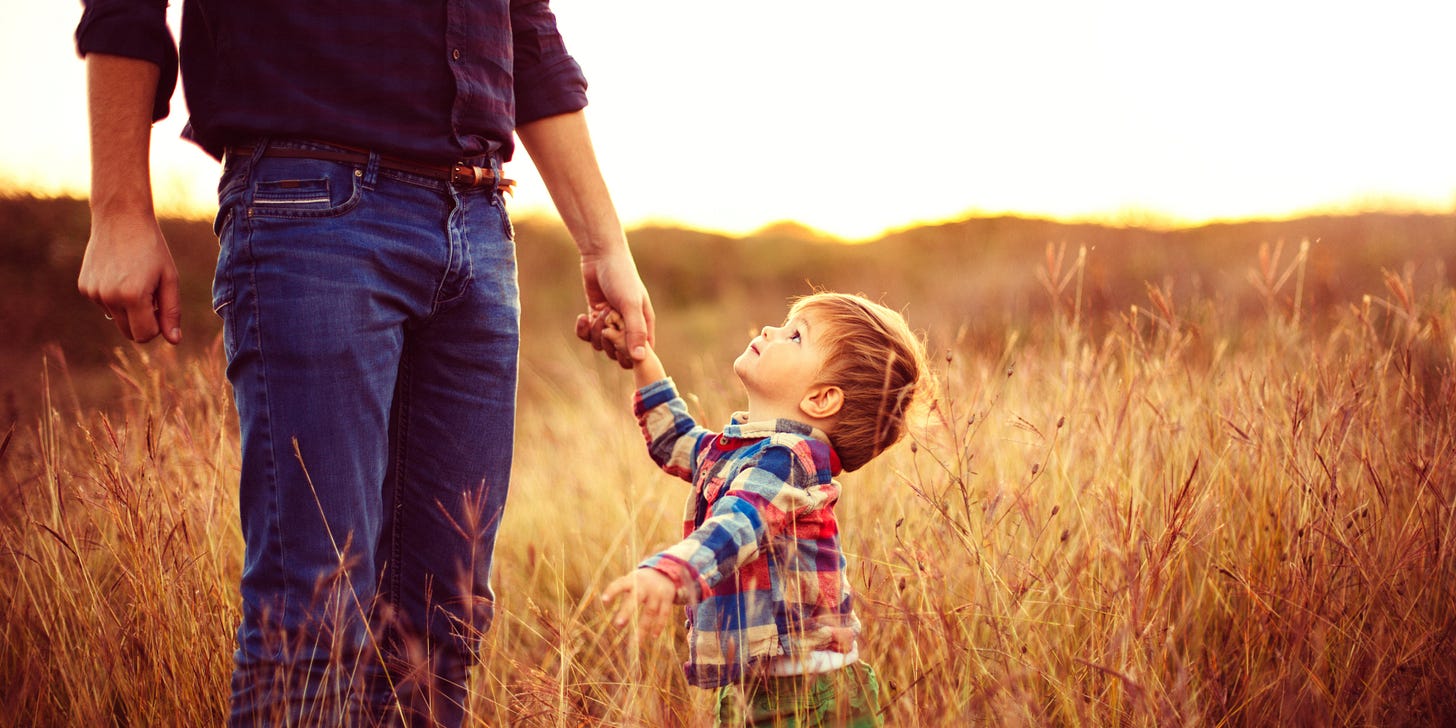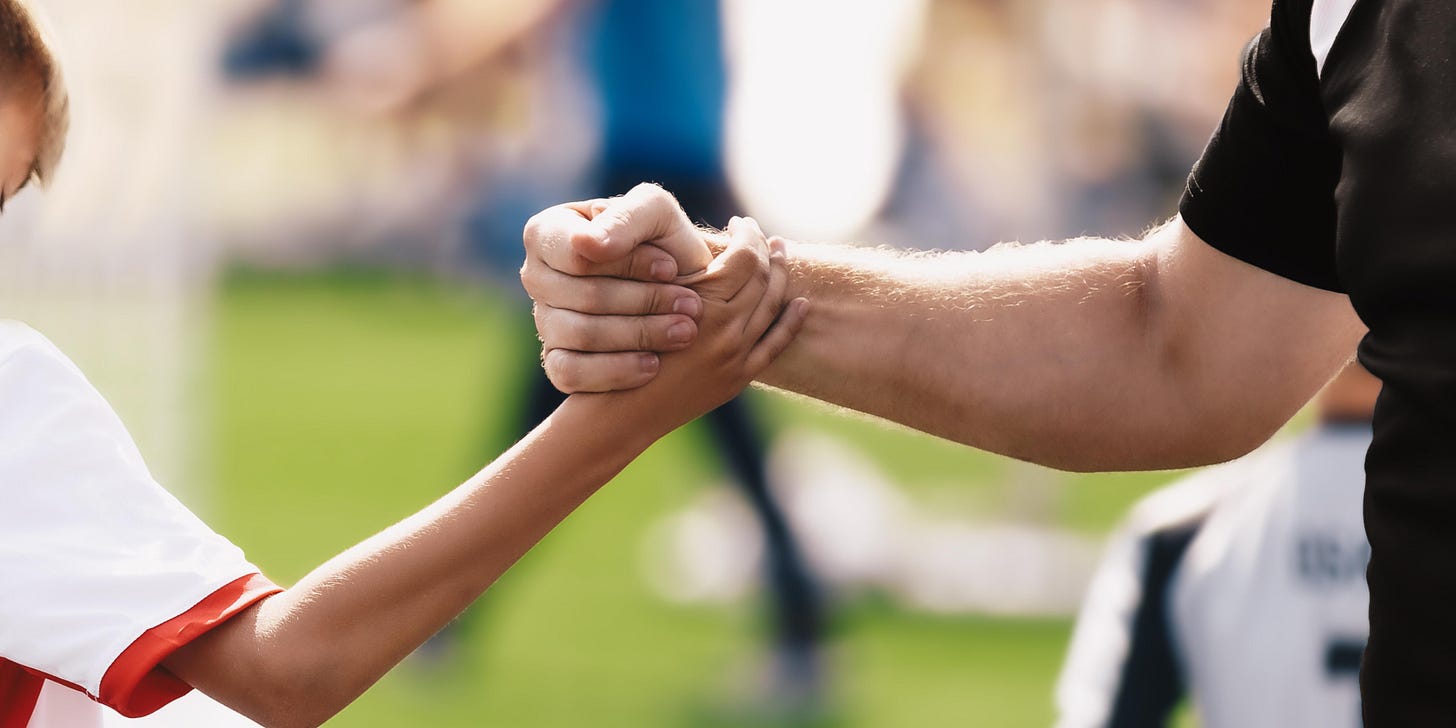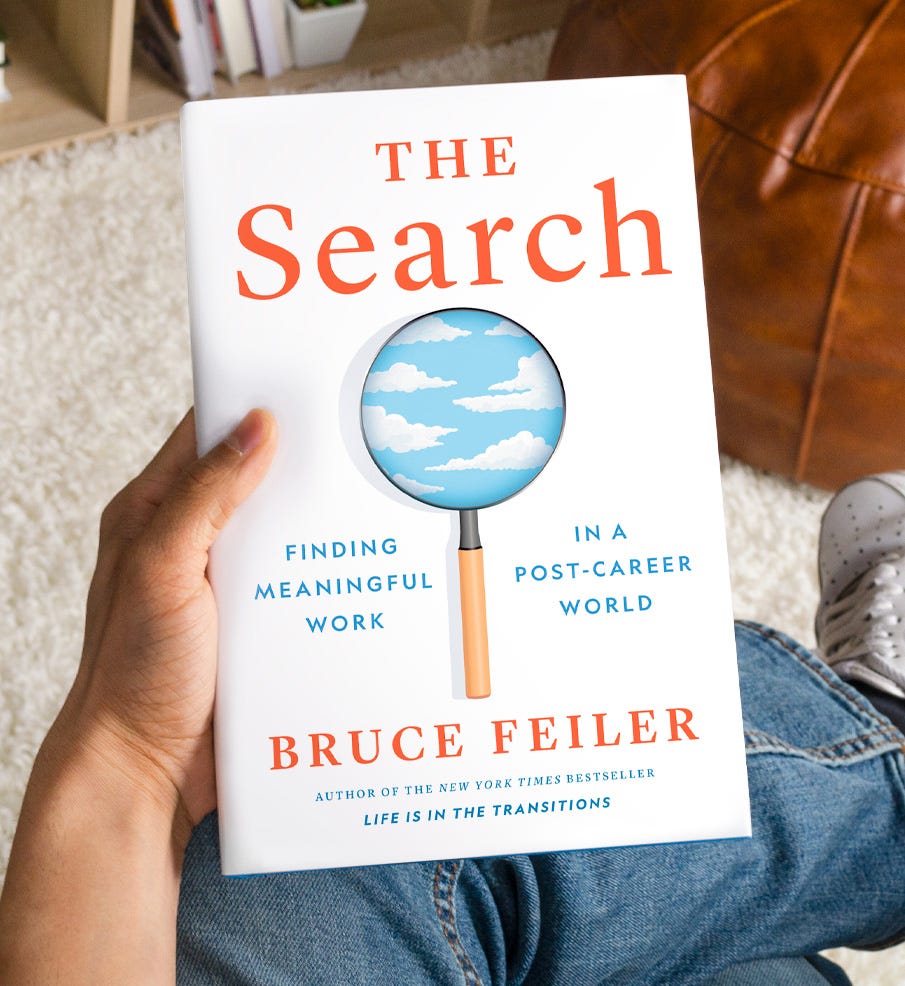The Role Model Challenge
The Surprising Question That Will Help You Be Happier Today
Thanks for reading The Nonlinear Life, a reader-supported newsletter about navigating life's ups and downs. If you're new around here, learn about me, or check out our introductory post. And if you enjoyed this article, please subscribe or share with a friend.
___
It seems like such a simple question: Who were your role models as a child?
For those struggling with a work transition – specifically for those who aren’t exactly sure what would make them happy right now – this question has been shown to be especially effective.
Mark Savickas, the dean of modern career counseling, told me that if you can ask only one question to someone who’s struggling with what to do, it should be, Who were your role models as a child? He adds these additional questions for clarity: Other than family, whom did you admire growing up? These role models can be people you knew, people you didn’t know, even fictional figures like superheroes or characters from your favorite books or movies.
Role models are deeply revealing because they represent our first choice about work. We take in characteristics from our parents; we take on characteristics from our role models. The first is passive; the second is active. And it’s in that act of election—specifically in articulating the traits or values we most admire in our choices—that we reveal what’s most important to us. Our role models’ lives become the roadmap for the roadblocks we struggle with.
And yet: Many people struggle with this question.
I’ve been using the topic of role models with a lot of podcasters I’ve been talking to recently. Most of the answers have been wonderful, but a few people simply can’t come up with an answer. You can listen to a delightful exchange I had on just this subject with Dan Harris on his essential Ten Percent Happier podcast, which was released just this week. Dan is incredible at what he does – and completely willing to go there on almost any subject. After a minute or two, he sheepishly admitted that his childhood role model was Gordon Gekko, the Wall Street tycoon made famous by Michael Douglas. The conversation that followed was fascinating—and completely revealing.
Meanwhile, not long after we taped our conversation, a reader wrote me on Facebook:
I know you're busy and unlikely to see my question, much less answer it. But how alarming is it that I can't think of an answer for the question “Who were your role models as a child?”! And on how many levels is this alarming?
I'm on page 186 of The Search. I was really rolling along, underlining important bits, writing down my well thought out answers to my Who and What. And boom! This freight train of a question.
For reference, I'm a midlife mom of 2. Trying to figure out what I want to be when I grow up and my kids leave the nest in less than 5 years. But I can't be the only reader stumped by this role model conundrum. Right??
Right!
So let’s look at why and try to get to the bottom of this reader’s “alarm.”
First, a little history:
In 1957, Robert Merton, the man known as Mr. Sociology, published a landmark study of medical students at Columbia University, in which he showed that younger doctors consciously emulated the older doctors around them, even if they didn’t actually know them. The younger doctors mimicked their elders’ habits, behaviors, and values. Merton was drawn to this subject because he had done something similar in his own life. Born to Russian Jewish immigrants, Meyer Shkolnik, as he was named, picked up magic by emulating his sister’s boyfriend. Told he needed a stage name, Meyer selected Merton from his hero Merlin and Robert from another hero, Jean-Eugène Robert-Houdin, aka Houdini.
The name stuck, and three decades later, Robert Merton paid homage to the influence of such magical figures by coining the term they still carry: role models.

I asked two questions about role models in my recent rounds of life story interviews. The first was, Who were your role models as a child? The second was, What qualities did you admire in them?
One observation that Merton makes about role models surprised me: Many of the figures the young doctors mirrored weren’t just strangers, they were celebrities. That distance meant that the young doctors had only “partial” or “limited” knowledge of their role models’ lives. A similar dynamic was true with me and my childhood role model, Pat Conroy; I didn’t meet him until I was well into my twenties, when I was already a published author. (That meeting—and the ones that followed—remain a highlight of my professional life.)
Merton’s insight remains true today. Half the role models my subjects mentioned were celebrities—Muhammad Ali, Madame Curie, Carol Burnett, Keith Haring. Thirty percent were professionals—pastors, pilots, politicians. The final 20 percent were teachers or coaches.
The values that people admired in their role models were similarly spread out, including authenticity, creativity, and dignity. The top three categories were character, representation, and charisma.
Among those who said character was Ken Tang, a Vietnamese refugee who grew up in Arizona, found inspiration in the writings of John Wooden, the basketball coach who led UCLA to ten national championships. “I admired the way he mentored people, which inspired me to become a second-grade teacher.” When Wooden was ninety-two, Tang waited in line for his autograph at a book festival. “When I told him what he meant to me, he got up, walked around the table, and gave me a piece of advice, ‘Your students are going to know how to read, write, and do arithmetic. Your job is to make sure they grew up to be contributing members of society.’ That advice changed my whole philosophy from being a drill-and-kill teacher to focusing more on how I made these children feel.”
Among those who said representation was Sonali Dev, an Indian American romance novelist, who said her role model was Jane Austen. “Every book I read had no female agency. Jane Austen was the first author wherein the heroines had self-worth. The women wanted to be happy and didn’t depend on the men for happiness.”
Among those who mentioned charisma was Dan Gallagher, who grew up in Pittsburgh looking up to Indiana Jones, for his “stoic character and interest in ancient history.” Dan became a priest and Classicist and today is a professor of great books who leads his students on tours of the ancient world.
The stories we inherit from our parents are part of the scripts we write about work; but we have no choice in our parents. The stories we compose about our role models are the earliest drafts of our own work stories; we write them from characters we alone choose and from characteristics we alone choose to admire.
But as true as that attachment may be, it’s important to remember that our life stories are constantly being revised, which is why I advised the woman who wrote me about her trouble identifying a childhood role model to pick one from today. Such a figure would likely open the same insight into her current predicament, because what you admire about your model at this moment might be a clue to how you want to live your own life at this moment.
Here's what she wrote back:
Thank you for your time and your response - it is gold!
An icon came to me at about 3 am... Matthew Cuthbert (Richard Farnsworth) from Anne of Green Gables. Weird, hey? But I'm sticking to it.
Also, I plan to one day write the story of my life, and I've always admired Pearl S. Buck.
So there you go. I'm 47 with an 87-year-old mind. How great and how very odd.
Thank you again. I bought a hardcover copy of your book and it's one that will be among the precious collection that my kids will one day inherit.
☀
Thank you for reading The Nonlinear Life. This is a reader supported newsletter. You can help by ordering a copy my new book. Click on the photo below to learn more.
Meanwhile, please help us grow the community by subscribing, sharing, and commenting below. If you'd like to do a storytelling project with a loved one similar to the one I did with my father, click here to learn more.
You might enjoy reading these posts:
Go Forth: 3 Pieces of Advice for College Students
My 15th Cancerversary: Reflections on Being a Survivor
The New Rules of Success in a Post-Career World
Or, you can contact me directly.







I'm not sure who my role model is, but I'm going to figure it out ☺️